Click here for Part I: Our Family’s Encounter with COVID-19
Part II : Fighting For Our Lives
Sunday, March 29.
I wake up at 7:30 am. Temperature? 98.6. Feeling better. Hmmm. But having read about the peak happening on day 9 with many people, too early to celebrate.
But Alicia wakes up at 10 am with 103.7, looking horrible. Whoa. How high can she go before she’s toast? 106?
Ilan wakes up at noon, coughing heavily and sweating bullets. 102.5. We are under siege. My wife and son both seem to be on the edge of the abyss.
As I rush downstairs to get him some water, I hear him whispering behind me.
“Papa, my left lung hurts.”
Now we have a valid reason to call 911, so I do. And might as well get Alicia to tag along, so both of them can see a doctor.
The paramedics walk gingerly up our driveway, masked up. One of them is wearing a real gas mask.
“You can go to the hospital, but there is nothing they can do for you. They will tell you to take Tylenol and drink lots of liquids. They will send you right back home.”
OK, but at least we can get some chest X-rays and a Covid test.
“Also, the hospital is not such a safe place now. Going there increases your risk of getting infected.”
Whatever, dude. We are already infected.
I am not allowed to come to ER with them. The wait at home is excruciating. For a moment, pacing alone in the kitchen, I consider the unimaginable: being the only survivor in the house. That would really suck.
But their stint at Greenwich Hospital is short indeed. X-rays are clear, their breathing is normal. They got tested. I bring them back in the late afternoon. Both look a little better.
I have been cooking for the family for the last week, gradually emptying the freezer where Alicia strategically stockpiled meats before the world blew up. Tonight, it’s lamb for dinner. Ilan still has an appetite. Alicia, not so much.
Late at night, a rare outreach from Russia. My distant cousin Anton in Novosibirsk, a couple years younger than me, whose last Facebook message to me was 3 years ago. I have never met the guy, but apparently he’s a big deal in his town – a popular TV announcer.
“How are you guys in New York? Here in Russia, we are still OK but people are stocking up on food, as usual in uncertain times. My ladies are all home, working and studying remotely. Valentina Fadeevna tries not to leave the house, she understands the gravity of the situation. Keep yourselves safe!”
“Anton, good idea to stock up on food. The plague is peaking here. We are sick, but not in critical shape. Watch out, it will come to your city soon too. The sooner you dig in at home, the better.”
“Given my job, unfortunately it’s not an option for me. Or for my brother. [Vsevolod is a doctor in ER.] Best wishes for your family and a speedy recovery!’
“At least put on a mask. And keep your distance from other people. No handshakes!”
“Will try my best.”
Over.
Monday, March 30.
My temperature is normal (97.7), coughing less too. The others, not so much. 102 for Ilan, 103 for Alicia. Ilan is wobbly as he stumbles into the bathroom, then starts vomiting. After a long puking session, he gets up slowly from his knees. I hover outside until I hear him say: “Uh oh.”
As I rush in, his eyes have rolled in the back of his head, and his limp body is tumbling straight at me. Holy shit. My son could end up dying in my arms.
He weighs more than me these days. I struggle to lower him to the ground, prop him up against the wall. Alicia, barely alive herself, scrambles from the couch and gets him a glass of water and an icepack for his head from downstairs. Gradually, he comes back to life. “I feel better now.”
That’s the beautiful part of puking. Sometimes your body just needs to get rid of something.
The afternoon floats by uneventfully, except for Alicia’s steady deterioration. She lives on the couch now, grunting and moaning, and does not come down to the dining room to eat. I bring her soup, or cereal, or apple sauce. She barely eats anything.
In the evening, another harsh wink from the big guy in the sky. A news story from Siberia pops up on my Facebook feed.
Vladimir Kuzmenkin is with Anton Luchansky.
“Anton has died. Hit by a car…”
This cannot be. I was just messaging with him yesterday. For the first time in three years. My final advice to him was to stay home. Hit by a car, right after getting off the tram. Is this a cruel joke?
But here’s the link to a local news story. It happened the same hour that Ilan was throwing up in the morning. Maybe he sensed trouble half a planet away?
I looked up to the ceiling fan, where Cory was perched atop a cloud of smoke.
“What the fuck?”
“It was going to happen anyway,” his face had no expression. “I don’t write the whole script, we work as a team up here. But I am allowed to add a plot twist sometimes. To remind you who is really in charge.”
“So you got him to message me on his final night. And I should be grateful that we connected one last time, right before it was his time to go.”
Suddenly, his poker face smiled approvingly.
“Think how you would feel if he never messaged you and now you saw this news. And then checked your inbox to see that the last time you were in touch with him was three years ago.”
“More shitty. And now I will remember him differently.”
‘That’s the point.”
And he faded away again, like the Cheshire Cat, before I could say thank you.
* * *
Sometimes you do something right, and don’t realize just how right you were until much later.
We raised Ilan in Astoria, a charming Greek blue collar neighborhood that was just starting to get hipsterized with young professionals looking for cheaper apartments within a 20-minute subway ride from the Midtown skyscrapers. We enjoyed long walks down Ditmars Boulevard to the East River, passing cute row houses with vines snaking around their veranda walls.
White pizza at Alba’s, deep fried zucchini crisps with tzadziki sauce at Christos, succulent snapper and lemon potatoes at Taverna Kyklades.
Pool games with crusty Irish old timers at McCaffrey & Burke.
Endless hours at a sunny playground on Astoria Boulevard, where Ilan lost one of his tiny flip-flops once.
Visits to Mom and Dad’s quaint apartment on 30th Drive, where the little balcony greeted us with a view of the sunset over Manhattan high-rises in the distance. Mom was not speaking much anymore, but Dad was still hobbling around, drinking beers with us and cracking jokes about President Bush.
“Dubya is a loser,” he opined soon after Hurricane Katrina. “That’s why there was a hurricane.” In his mind, every event and number had a purpose and a hidden meaning. World history was governed by a majestic force, a chorus of Corys waltzing around a smoke-filled room, deciding our fates and winking at us from time to time. New Orleans sinking and burning, with rotting corpses floating in the streets and desperate survivors looting stores, was no accident. We were being sent a warning.
“Nothing worse in the middle of a catastrophe than to realize how weak this country’s infrastructure is, and what a bunch of idiots are in charge,” he chuckled in disbelief. “It’s all under control, the levees will hold. Yeah, right. And they won’t learn from this, either. The next disaster will be even worse. Cretins.”
An aging Yoda spewing prophecies, while slowly playing catch with his rosy-cheeked two-year old giggling grandson.
There was one problem with Astoria. Ilan’s lungs didn’t like it. He developed asthma. Whenever he caught a cold, even as a baby, his wheezing and shortness of breath turned our lives into hell.
Eventually, we put 2+2 together. Alicia did some research. Apparently, our cute neighborhood, sandwiched between two old power plants belching smoke from their tall chimneys, was also known as Asthma Alley. 80% of local children had respiratory problems. Could a change of scenery help? Not to mention, we were outgrowing our apartment and I had made partner at my firm recently, so our housing budget had more wiggle room now.
Buying a house in 2009 was scary, as the economy was collapsing around us. We took the plunge, and bought at the bottom of the market in a Westchester beach town. The hour-long commute to work from Rye was a drag, but now we had luscious trees around our sunny deck and a patch of green grass in the backyard. And the ocean air blowing in from the Long Island Sound was cleaner and soothing.
The following year, Ilan’s asthma disappeared. In middle school, he joined the cross-country and track & field teams, and developed strong runner’s lungs. It didn’t hurt that, even before that, he took up playing French horn, blowing forcefully into the giant curly tube.
Whenever we visited Dad, who was still in Astoria, Alicia and I looked at each other and said: “Glad we are not living in the city anymore.” Suburbia had won us over.
Dad was now in a wheelchair at a nursing home, after Mom passed away, haggard and aloof. But he still kept a wary eye on me. “You are healthy, right?,” he would always ask. “Dress warmly when it’s cold outside.”
“Yeah,” I would put him at ease. “And Ilan’s lungs are in great shape now.”
Our move had already paid dividends, and would do so again.
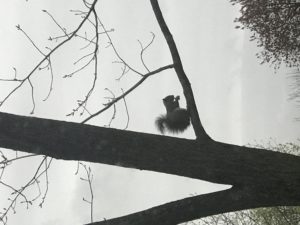
* * *
The week flew by in a blur. On Wednesday we got official confirmation: Alicia and Ilan both tested positive for Covid-19. No shit, Sherlock.
Conference calls. New deals. The market players were back, now interested in distressed debt. Structure charts were flooding my email inbox. The death toll on TV kept growing and 6.6 million Americans filed for unemployment this week, but Wall Street was back and humming, seemingly divorced from Main Street realities.
Just like Katrina, the crisis was revealing the soft underbelly of the nation. And once again, stellar leadership in Washington was making us feel so much safer. You don’t need tests or facemasks. Just drink some Clorox, and it will go away like magic. No need to panic. It’s a hoax. Dad would have been having a field day analyzing our government’s response, if he had still been in his prime.
We were left to our own devices, infected with a deadly virus in a rudderless country. The cavalry was not coming to rescue us. So we soldiered on.
Ilan gradually got better, his temperature settling into the 99-100 range, and the coughing lightened up. His appetite never dropped. He wolfed down big bowls of spicy Korean ramen.
Alicia kept waking up with high fever, topping the charts at 104.5 on Wednesday. Tylenol would get it down to 102, but she remained horizontal on the couch all day. Her throat felt like sandpaper. Her thunderous cough rattled the entire house.
I thought I was recovering, with normal temperature for three straight days, but spiked again to 100.1 on Thursday. Normal colds play checkers, in a predictable pattern, but this virus was playing chess. Just when it seemed I had him beat, he reminded me again who’s the boss.
Friday, April 3.
I am teaching a webcast to our M&A staff while drinking tons of water and urging Alicia to do the same. In the morning, we try a desperate experiment suggested during a phone consultation by the substitute doctor (our regular doctor is in the hospital with Covid himself). Although Advil gets a bad rap for Covid patients, it helps knock down fevers more effectively than Tylenol. “Try it once, just to see if you can stop this pattern. Waking up with 103, 104 every morning is not good.”
After another 103.5 opening bid in the morning, Alicia takes Advil. By mid-day she is down to 98.8, worn out but more lucid. She even eats half a bowl of oatmeal. Progress? By evening, she is back up to 100.3. But that’s still more manageable than the last few days in the inferno.
I am frying shrimp teriyaki when the next shoe drops. I cannot smell the food. How long has this been going on? “Yeah, I haven’t been able to smell either,” Alicia connects the dots.
“What next?,” I shrug as I roll over in my chilly and lonely guest room bed, tired after a week’s worth of hard work, eyes glazing over from reading about the growing global hardship on my iPhone.
“Do you really want to know the future?,” Cory floats by on a broomstick, hovering high above me again. Upon a closer look, it’s a pool cue. “It could be a future without you in it.”
“Death and taxes are inevitable,” I reply with an old quote. “The only things that vary are timing and character. As Kenny Rogers put it: The best you can hope for is to die in your sleep.”
“You won’t die from this. None of you in this house will die from it.”
Already kind of knew that, but still reassuring to hear.
* * *
The next morning, Alicia woke up with 99.2. A sea change. I topped the charts with 100.4 that day, and Ilan tried to match me with 100.3 in the evening, but that was Covid’s last gasp.
It took a few more days for the sickness to clear out, and by Wednesday, April 8 everyone’s temperature was down to the normal 97-98 neighborhood – for good. The occasional cough and lack of smell persisted for a while longer. But after two and a half weeks of staring into the abyss, our family was slowly recovering.
Looking back on it, it’s not clear why I, an avid smoker back in my single days, had the mildest case in the family. Was it my partly Asian genetic toolbox? An arsenal of old antibodies or T cells, gained in earlier battles with Covid’s cousins during my miserable sickly childhood? The TB vaccination shot that was mandatory for every Soviet baby? My blood type? A smaller viral load than what the others got?
Whatever it was, our celebration was brief. After breathing a sigh of relief when it became clear that Cory didn’t lie to me, I started inquiring how Dad was doing in his nursing home. They already had some cases on his floor. He had a slight fever, they said, but was doing OK. Visits were prohibited long ago, not that it would have been wise for me to show up there anyway. With my hacking Covid cough, I would have been a weapon of mass destruction.
Back when the pandemic started, I quickly recognized that all nursing homes would be a feast for the virus. There was not much to do about it, except pray and wait. Dad already had a bout of pneumonia last April, breathing rapidly, eating nothing and looking like a ghost when I visited his bedside. Only an intervention of IV fluids saved the day. He survived, but was never the same afterwards.
Over the year that followed, his speech became quieter and simpler. “Still OK?,” he would whisper, then give me my customary kiss on the cheek. “All right then.” Calm and dignified, he would pensively munch on raspberries, one of the few foods he could still eat despite missing most of his teeth. I put them in his mouth one by one, feeding him like a baby, in a reversal of generational roles. He could not grasp them with his shaking wrinkled fingers anymore.
“But you’re still OK, right?,” he would perk up suddenly, again staring at me with concern. “Be careful.” In the back of his shrinking mind, Dad was accurately foreseeing the next calamity that would hit our civilization, but could no longer articulate it.
A frail 82-year-old man hunched over in his wheelchair, dependent on contact with other humans to sustain him, he was now a sitting duck.
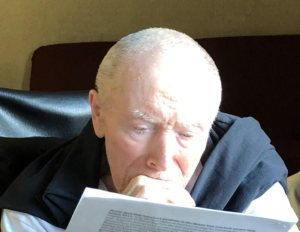
* * *
Dad had witnessed the destruction of World War II and Stalin’s purges, the Cuban missile crisis and Brezhnev’s decay. He drilled for oil in the Arctic and gas in Siberia. He taught me how to build a campfire, giving long lectures on European history while we strolled through the forest, and patiently explained how to ride a bike.
In 1984, he and Mom made the biggest gamble of our lives: leaving the Soviet Union and bringing me to America. We were in a strange new place and our worldly possessions were reduced to a few suitcases, but in his mind it was all worth it: “If we had stayed there, you would be drafted in the Army and sent to fight in Afghanistan.” Together, we saw Reagan’s glory years – and the collapse of our former country, from a safe distance in Brooklyn.
Already a middle-aged man with a heavy accent, he never managed to get a job in geology again, working odd jobs instead: sometimes as a poorly paid data entry clerk, sometimes as a messenger – which ultimately resulted in painful hernia surgery. But when he retired in 1999 to his massive collection of books, which he shrewdly bought for pennies as local libraries downsized, he considered his mission accomplished. We were here, not There. And I was now in law school, poised to achieve the prosperity that eluded him.
So he watched the burning World Trade Center towers and the Iraq invasion on TV, talked to me about global warming and Ukraine, and pondered what might happen next. “These are important times,” he stressed. “You should always write down what you see.”
The coolest thing about Dad was his irreverence. He challenged and mocked irrational dogmas that most people slavishly followed, whether it was the Soviet system or American fashion.
Soon after we came to America, he observed that the locals didn’t like to wear fur hats, even in frigid weather. To him, steeled by icy Russian winds, this was pure lunacy.
“Look at these people who went outside in very cold weather with their bare head. Now they are standing on this subway platform, freezing their asses off, their faces swollen with frostbite, their teeth clattering, while we are comfortable in our warm fur hats. Tomorrow they will be home sick, and we won’t. All because they didn’t want to ruin their trendy hairstyle. Duraki. Don’t grow up an idiot like them, imitating others when they do stupid things, just to try to look cool.”
That’s the feisty Dad whom I will always remember. Thanks to his teachings, I shamelessly wear my fur hat every winter. It feels very cozy. And anybody who thinks it looks goofy can go fuck themselves. Inherited that from him.
In his final days, he did not speak or move. He just stared peacefully straight ahead, composed and serene, already seeing the other shore. But, a gentleman until the end, he paused to make sure we were “Still OK.” And Cory gallantly waited in the hallway, marking up the script handed down from his superiors.
* * *
Good Friday, April 10.
I feel healthy and fully recovered. Work heats up. Three calls on different deals in rapid succession. The second one, a two-hour marathon walk-through of a complex tax basis and COD income model, is halfway over when my personal phone flashes a missed call on the console by the TV. Fuck it. Will have to get to it later.
One hour later, the final big call of the day is easier. I am “mostly in listen mode.” Next on my to-do list for late afternoon: Call Dad.
Oh yeah, what was that missed call on the second phone… Oh wait, it’s lighting up again. 718. Queens number. Shit. I had a bad feeling about picking it up.
“It’s Singh. I am so sorry. Alexei is gone. It all happened very quickly… He spiked a fever, and that was it.”
So much for the rest of that to-do list.
Tuesday, April 13.
Sunny April afternoon at the cemetery. Everyone wearing facemasks. At the grave, it’s just us, the priest and the funeral director. Dad found Catholicism late in his life.
Right before, they let us see Dad one last time. He wore a crisp white shirt and held a crucifix in his pale hands. He looked satisfied with the epic life he had lived and the legacy he was leaving behind.
I spend the next few hours frozen in a lounge chair on our deck, sipping a glass of wine, numb from the horror of the last month. Condolences are still pouring in.
The next call, kicking off my Deal of the Year, is in a few hours at 5:30.
* * *
Cory was not wearing his usual hoodie today. His brown robe fluttered in the wind. He sat on a long tree branch dangling across from our balcony, smoking a Marlboro. Ah, in my earlier days I would be so hungry for a smoke right now…
“You said it was all about timing,” he reminded me. “This way, it hurts less.”
“We know. We should be grateful for the extra year we got with the old guy.”
“Yeah, you were lucky to get those raspberry visits in the last few months. I had to lobby them hard to change the script last year for that.”
“Thank you.”
“You’re welcome,” he took a deep puff. “I am not the enemy. Mostly, I am just a messenger. You people are your own worst enemy, but sometimes you learn. That’s where I come in. They send me out when it’s time to teach a lesson.”
“Will I see you again?”
“No, kid, I am done with you. But keep an eye out for my twin Cody, who is coming to town next Fall. Don’t make same mistakes again. He is less forgiving than me.”
He won’t scratch on the 8 ball on purpose, I thought to myself.
“I will be sure to stock up on facemasks and not go to bars much.”
“Next time, be quicker with to-do lists,” Cory added. “Conference calls can wait.”
“Anything else I should be doing?”
“Keep riding that bike. You might need healthy lungs again some day.”
“Hey, I lost 7 pounds since this started. Not an optimal weight loss strategy, I admit, but my pants fit better now. Also, I don’t think I will ever bum a cigarette from someone else again.”
“Nothing wrong with seeing a silver lining,” Cory crushed out his cigarette on the tree stump and jumped down to our deck. “It sounds like you learned a few things. Now I need to go see a few other folks in the area. I am a social animal, you know. But I enjoyed my stay in your lovely house. And your Dad is a good guy. Wise, too. We saw eye to eye with each other right away. He kept worrying about you until the very end.”
He paused before heading down the stairs to our driveway. “You should write something about all this. Give him a proper obituary. He deserves it.”
As the coronavirus walked away into the evening darkness, for some reason I thought again of Kenny Rogers and another verse from his famous song.
But in his final words, I found an ace that I could keep.
Vadim Mahmoudov, May 23, 2020
P.S. 90% of this is a true story. The rest was inspired by Kenny Rogers.
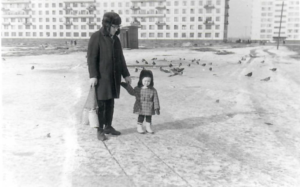

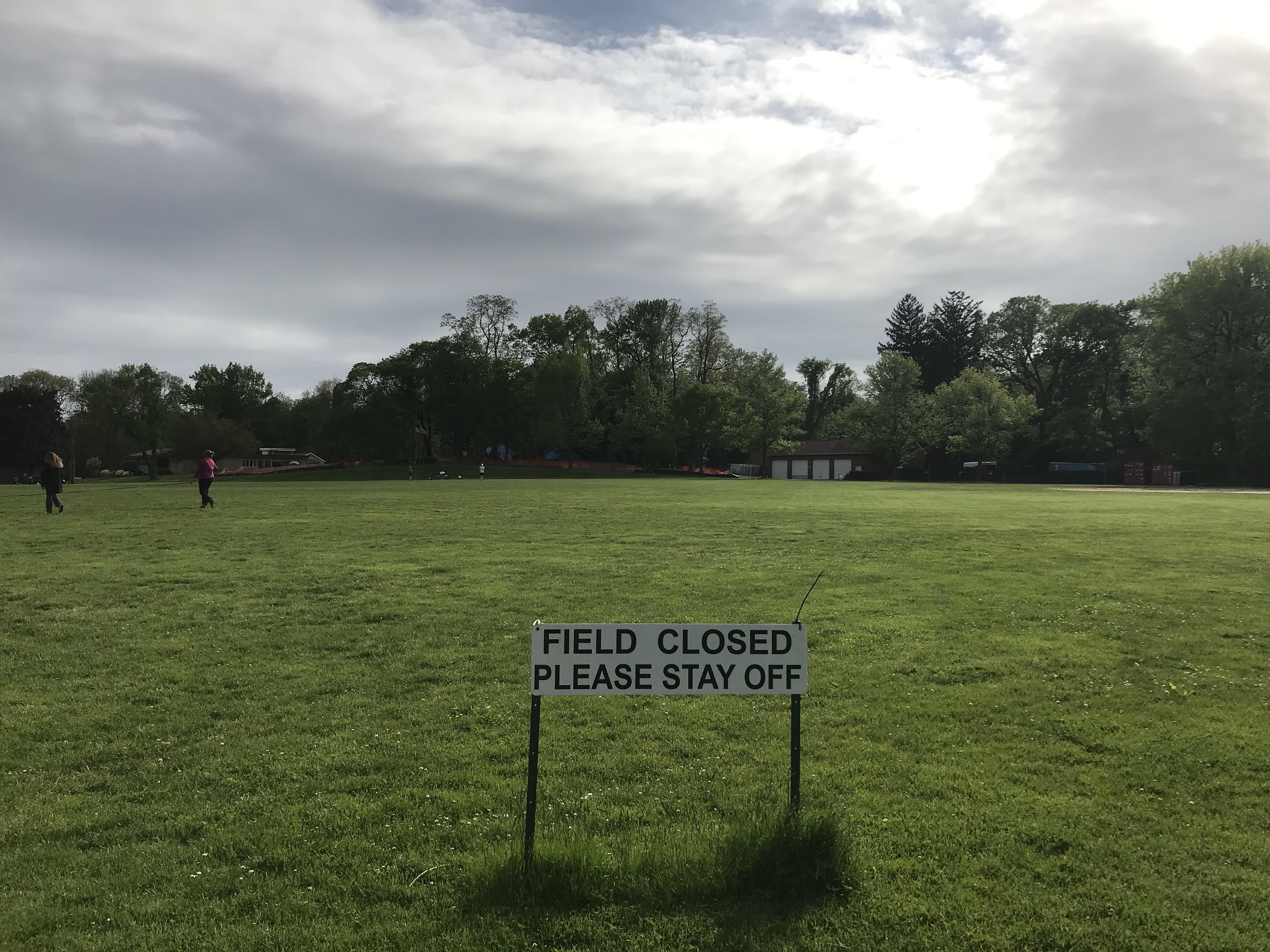
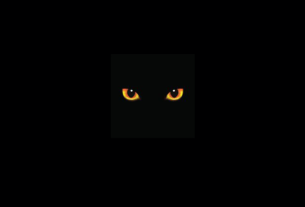

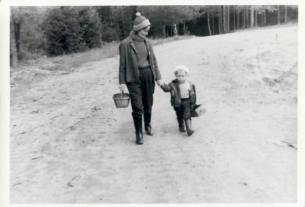
Really moving piece, Vadim. May your Dad’s memory be a blessing; thanks so much for writing this. Glad that you and the immediate family are well; stay safe.
A poignant, thorough piece that hits the marks and as such provides not only a cautionary tale, but a map. Blunt, objective, cynical, and honest in assessing mistakes made, and the cost of hubris, this narrative takes you through the life of a family enduring loss, but fighting to endure.
I’m sorry you had to live through it. I’m glad you made it through. I’m sorry for all the losses. Hopefully, we will find a normal again one day.
Remarkable writing, Vadim. Your mom would be proud. I’m thankful you, Alicia, and Ilan are ok. Our thoughts are with you often. Hopefully we’ll see you soon.